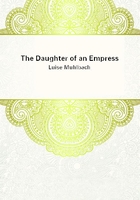
第66章 THE CHARMED GARDEN(1)
One must be very happy or very unhappy to love Solitude, to lean upon her silent breast, and, fleeing mankind, to seek in its arms what is so seldom found among men, repose for happiness or consolation for sorrow! For the happy, solitude provides the most delightful festival, as it allows one in the most enjoyable resignation to repose in himself, to breathe out himself, to participate in himself! But it also provides a festival for the unhappy--a festival of the memory, of living in the past, of reflection upon those long-since vanished joys, the loss of which has caused the sorrow! For the children of the world, for the striving, for the seeker of inordinate enjoyments, for the ambitious, for the sensual, solitude is but ill-adapted--only for the happy, for the sorrow-laden, and also for the innocent, who yet know nothing of the world, of neither its pleasures nor torments, of neither its loves nor hatreds!
So thought and spoke the curious Romans when passing the high walls surrounding the beautiful garden formerly belonging to the Count Appiani. At an earlier period this garden had been well known to all of them, as it had been a sort of public promenade, and under its shady walks had many a tender couple exchanged their first vows and experienced the rapture of the first kiss of love. But for the four last years all this had been changed; a rich stranger had come and offered to the impoverished old Count Appiani a large sum for this garden with its decaying villa, and the count had, notwithstanding the murmurs of the Romans, sold his last possession to the stranger. He had said to the grumbling Romans: "You are dissatisfied that I part with my garden for money. You were pleased to linger in the shady avenues, to listen to these murmuring fountains and rustling cypresses; you have walked here, you have here laughed and enjoyed yourselves, while I, sitting in my dilapidated villa, have suffered deprivation and hunger. I will make you a proposition. Collect this sum, you Romans, which this stranger offers me; ye who love to promenade in my garden, unite yourselves in a common work. Let each one give what he can, until the necessary amount is collected, then the garden will be your common property, where you can walk as much as you please, and I shall be happy to be relieved from poverty by my own countrymen, and not compelled to sell to a stranger the garden so agreeable to the Romans!"But the good Romans had no answer to make to Count Appiani. They, indeed, would have the enjoyment, but it must cost them nothing--in vain had they very much loved this garden, had taken great pleasure under its shady trees; but when it became necessary to pay for these pleasures, they found that they were not worth the cost, that they could very well dispense with them.
The good Romans therefore turned away from this garden, which threatened them with a tax, and sought other places of recreation;while old Count Appiani sold his garden and the ruins of his villa to the rich stranger who had offered him so considerable a sum for them.
From that day forward every thing in the garden had assumed a different appearance. Masons, carpenters, and upholsterers had come and so improved the villa, within and without, that it now made a stately and beautiful appearance amid the dense foliage of the trees.
It had been expensively and splendidly furnished with every thing desirable for a rich man's dwelling, and the upholsterers had enough to relate to the listening Romans of the elegant magnificence now displayed in this formerly pitiable villa. How gladly would the former promenaders now have returned to this garden; how gladly would they now have revisited this villa, which, with its deserted halls and its ragged and dirty tapestry, had formerly seemed to them not worth looking at! But their return to it was now rendered impossible; for on the same day in which the new owner took possession of the garden, he had brought with him more than fifty workmen, who had immediately commenced surrounding it with a high wall.
Higher and higher rose the wall; nobody could see over it, as no giant was sufficiently tall; no one could climb over it, as the smoothly-hammered stones of which it was built offered not the least supporting point. The garden with its villa had become a secret mystery to the Romans! They yet heard the rustling of the trees, they saw the green branches waving in the wind; but of what occurred under those branches and in those shaded walks they could know nothing. At first, some curious individuals had ventured to knock at the low, narrow door that formed the only entrance into this walled garden. They had knocked at that door and demanded entrance. Then would a small sliding window be opened, and a gruff, bearded man with angry voice would ask what was wanted, and at the same time inform the knocker that no one could be admitted; that he and his two bulldogs would be able to keep the garden clear of all intruders. And the two great hounds, as if they understood the threats of their master, would show their teeth, and their threatening growl would rise to a loud and angry bark.
They soon ceased to knock at that door, and, as they could not gain admission, they took the next best course, of assuming the appearance of not wishing it.